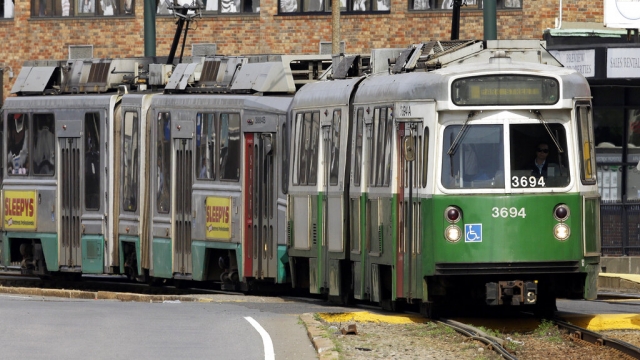It could be a long, hot and slow-moving summer for millions of Americans who rely on public transit each day as many subway, commuter rail and bus systems are hitting critical breaking points. It's a problem experts say is only going to get worse in the years to come.
"The pandemic really showed the underbelly of the faults of the transit systems across the country," said Peter Wilson, policy adviser at Transportation for Massachusetts.
Wilson was aboard Boston's Orange Line subway last summer when the 43-year-old train caught fire on a bridge. It led to a monthlong shutdown of one of the busiest subway lines in the nation.
Five years' worth of work was supposed to be completed in 30 days. But the infrastructure was in such a state of disrepair that last summer's shutdowns weren't enough.
Nearly a year later, the Massachusetts Bay Transit Authority, which operates Boston's subway system, is implementing yet another round of shutdowns to address critical safety and track work. It's become a cautionary tale to other cities across the nation.
"If you don't upkeep your fleets and infrastructure, you're going to have catastrophic failure," Wilson said.
SEE MORE: Is public transit becoming less safe?
Each year, the American Society of Civil Engineers issues a public transit report card. In 2021, the United States received a D-. Individual states have also started issuing their own report cards. Iowa, Vermont and Virginia all received C's in the last few months.
Meanwhile, some localities are getting a boost in federal funding under President Biden's Infrastructure Investment and Jobs Act, which was passed in 2021. Sacramento, California; South Florida; Chicago; Missouri; Illinois; Utah; and Cleveland, Ohio, are receiving a total of $1.5 billion this year to upgrade and replace rail cars.
However, there is currently a $176 billion backlog in unfunded transit projects nationwide. The failure to address even the most basic infrastructure needs is leading to catastrophic failures and shutdowns like the one playing out in Boston.
SEE MORE: White House announces $570 million to fix dangerous rail crossings
Even in a city like Denver, where the light rail was built less than 30 years ago, equipment is no longer considered new.
Trains have a life span of about 30 years, and buses should only be on the road for 12 years. But because of underfunding, many cities have stretched those years far beyond what's safe.
"Some people don't have choices [and] it's even worse for them," Wilson added. "Imagine relying 100% on public transit and not knowing when you walk out the door if you'll get to work on time."
At the end of the day, it's citizens who will ultimately pay the price for America not investing in public transit services.
Trending stories at Scrippsnews.com




